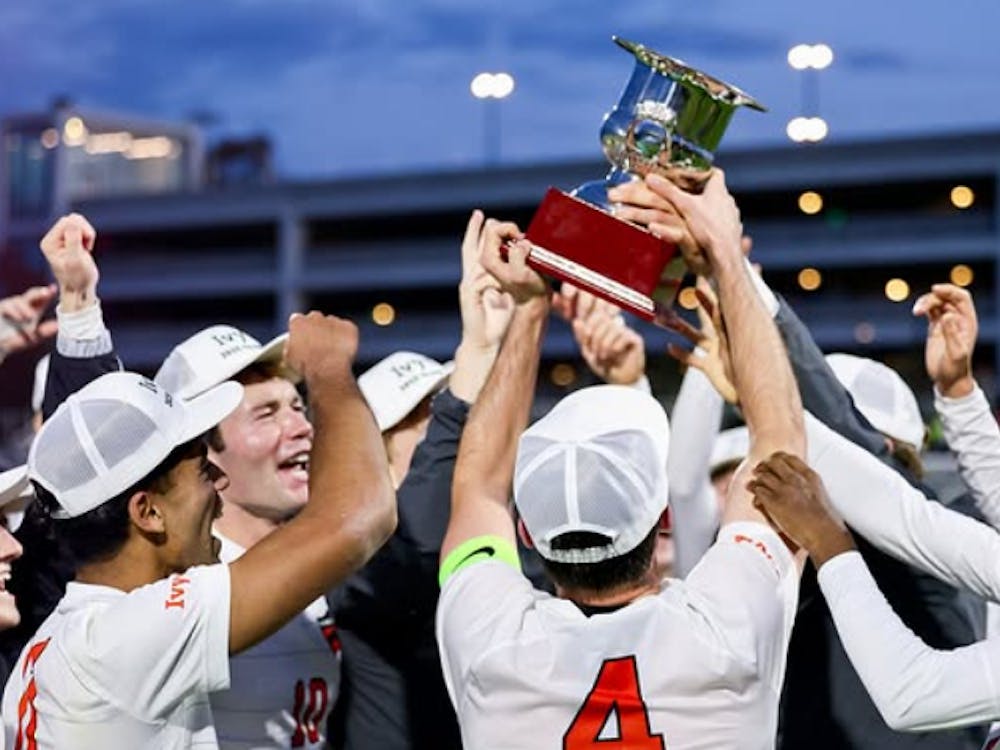When wide receiver Plaxico Burress accidentally shot himself in the leg in November 2008, the New York Giants were 10-1 and defending Super Bowl champions. They had the look of a dynasty in the making, and on the few occasions that Burress’ self-inflicted wound has come to my mind since, it has always been within that context: He ruined something potentially great.
This is by no means an uncommon thought for sports fans to have, nor is it one I feel particularly bad about having, although it is without a doubt deplorable. The injury was not considered life-threatening, but Burress spent almost two years in prison (for possession of a handgun within New York City limits) and had his career essentially ruined by an act of carelessness that physically harmed no one but himself. If it wasn’t exactly Sophoclean, it was at least a pretty bad break; under ordinary circumstances, some mild empathy would be surprising but justifiable.
I didn’t feel any empathy though, and in the hundreds of Internet-archived reactions you would be hard pressed to find a single instance of it — instead there was a pretty equal mix of righteous anger, disbelief and amusement. Strange, really, considering that Burress was a human dude for whom millions of people had cheered in the past and who caught the game-winning touchdown pass in perhaps the most famous football game of our time.
So yeah, famous professional athletes aren’t afforded very much humanity. We know that by now. Nobody ever thought to ask Burress if it sometimes still hurts where the bullet went in, or if prison messed him up, and the thought of asking him is so far outside of the normal realm of athlete-media-fan interaction as to almost be implausible. It isn’t about criminality — plenty of upstanding citizen-athletes are treated and dissected like so many pricey, high-performing cattle or machines. Nor is it just about fame — to the contrary, famous actors and actresses often find their humanity highlighted, exaggerated by the tabloids.
You are almost certainly friends or classmates with an athlete who competes at Princeton. Maybe you know someone who competed in the Olympics or who plays for a major program at an SEC school. Just maybe there is an acquaintance of yours who has a puncher’s chance at one day playing professionally. Is there anything different about them?
A thought experiment might help put this in less abstract terms: Consider senior Caraun Reid, the football team’s star defensive tackle. There’s been light buzz that if he were to pursue football, he might be taken late in the NFL Draft or picked up afterward as an undrafted free agent. Say an organization does decide to take a chance on Reid — they like his upside, his smarts, whatever. He grows as a player, impresses his coaches and makes the team. He gets played more and more often on Sundays, he’s making half a million dollars a year and loving the whole experience. Then, midseason, he tears an ACL in an off-the-field accident.
Some part of your heart flinches at that, right? You may have watched Reid play here, known him personally or been in a seminar with him, just like you are friends with or vaguely otherwise know the names and faces of hundreds of other people on this campus. The point is that his becoming a professional athlete doesn’t change anything. He’s not any different.
This is the aspect of athlete objectification that is so central and hard to understand. Is there a line in the sand that, once crossed, results in a forfeit of humanity? If so, where is it? Is it money? A level of athletic ability impossible for the average person to imagine possessing? Why, for instance, will Jovan Belcher, even in death — no matter how much fans try to dissociate — always be a football player before he is anything else?
That’s a heavy dose of rhetorical questions, and some heavy questions at that, but that line in the sand is the crux of things. I have no idea if it’s real or imaginary; maybe there actually is something different, separating, about professional athletes at their core. Regardless, it couldn’t hurt to ask.








